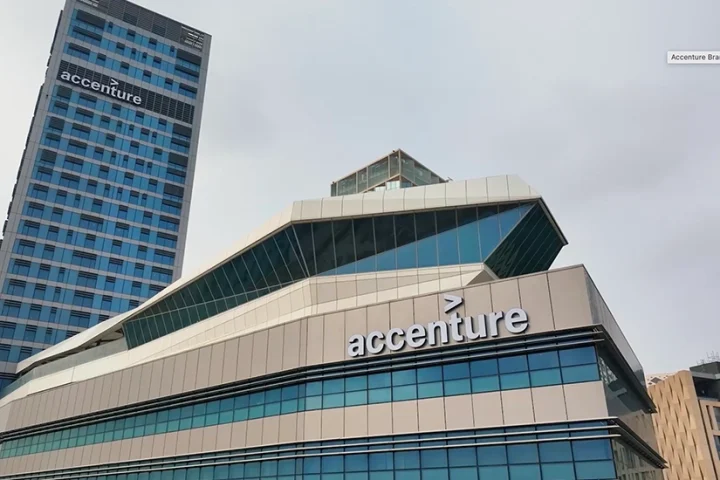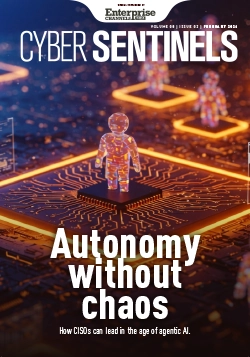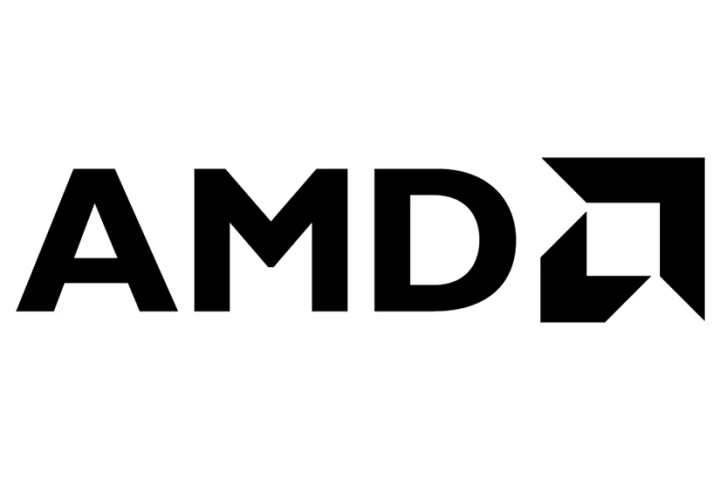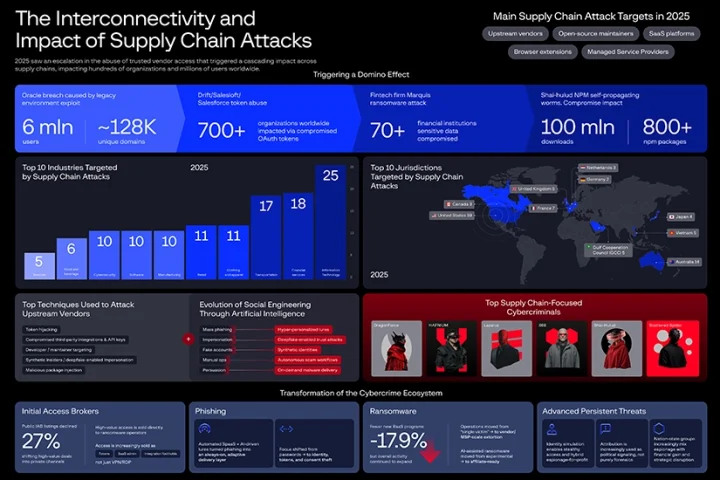Aruba and Zebra are market leaders in their respective technologies. Aruba leads the global industry in wireless networking, while Zebra is the global leader in enterprise class mobile computing. The combination puts accessibility and availability of business critical information into the hands of frontline workers across various industry segments.
To make data available at the edge of the enterprise not only requires combination of robust devices, such as mobile computers that can capture information, but it also requires highly available network capability to enable transmission of this data. “The coming together of global leaders, Aruba and Zebra can benefit customers through better integration and interoperability of their technologies,” says Hozefa Saylawala, Director of Sales Middle East, Zebra Technologies.
The coming together of Aruba and Zebra is all about how to give customers the best of both worlds, have a great Wi-Fi infrastructure, have a great mobile computing solution, and give customers complete visibility of what is happening
“Mobile devices need to have a seamless infrastructure as an underlay, which is Wi-Fi in this case. Handhelds are continuously talking to the backend applications, and the coming together of Zebra and Aruba addresses a particular need in the market,” adds Jacob Chacko, Regional Director, Middle East and South Africa, Aruba HPE.
Challenges of mixed vendor systems
When mixed systems are working together, any glitch, especially in an enterprise class warehouse or healthcare institution or sprawling retail hypermarket, for example, means that identifying the problem is prolonged process. And if the problem is not identified in time, this impacts critical workflows and loss is multiplied.
The coming together of Aruba and Zebra is all about how to give customers the best of both worlds, have a great Wi-Fi infrastructure, have a great mobile computing solution, and give customers complete visibility of what is happening. This has created a symbiotic relationship.
Once mobile computers are being used at the edge of the enterprise, where critical data flows into hands of the end user for them to make business critical decisions, data has to be secured. Also data has to have high availability. For this purpose, Zebra is using Zebra Wireless Insights in order to ensure availability of data and quality of data, for business processes. “However more often than not, when vendor solutions work in isolation, this leads to passing the ball,” says Saylawala.
Resolution of outages in such mixed environments becomes challenging when there is a limitation in end to end visibility. For example, Zebra Wireless Insights is often able to pinpoint the reasons for an outage inside mobile computing devices and associated business applications, but the challenge in the past has been fault identification inside wireless networks.
If a Zebra customer is using Aruba in its environment and has the UXI capability, then Aruba UXI automatically extends as a soft arm on Zebra’s mobile computers
“The lack of synergy between wireless providers and our technology would mean that isolation of the problem would be in the hands of the end customer who would be unable to get a resolution from the parties,” points out Saylawala.
Amongst the challenges would be – no visibility in terms of the performance of network and the performance of application on the network. As an example, inside industries like healthcare which use extensive voice communication for preparing automated transcribed medical patient records, lack of visibility into the performance of voice applications, can slow down their back office functions.

The larger the enterprise and the structure of its assets, embedded within business processes, the more challenging it can become to resolve outages, and captured through various indices such as mean time between failures, mean time to fix, and meant time to resolved.
Interoperating the two platforms
In May 2021, Aruba, announced the availability of an embedded solution for mobile devices that delivers real-time visibility into roaming user experiences and application performance. Developed in partnership with Zebra Technologies, Aruba User Experience Insight, UXI’s artificial intelligence software agent gets embedded inside Zebra mobile computers and analyses real-time voice and data traffic.
This agent proactively flags issues that could affect application, Wi-Fi connectivity, roaming, and voice performance. The early warning provided by Aruba UXI informs remedial actions so that business-critical applications and end user experiences are not impacted. The result is higher up-time, increased productivity, and more expeditious problem remediation.
Aruba’s artificial intelligence-based UXI agents’ network and application testing capabilities work in concert with Zebra’s Wireless Insights to expose a device-level view and pre-analysed insights of the network. The results are displayed on Aruba’s intuitive UXI dashboard.
The joint solution enables IT teams to automate the collection, analysis, and remediation of performance issues in real-time using data observed from devices that are being impacted. Historical data alone simply cannot provide the same level of accuracy as live data. For example, connectivity and voice performance might vary considerably while standing at floor level, moving on a forklift, or while picking at the top of a storage rack. The real-time nature of data collection means that even transient events that might otherwise go unnoticed are captured and analysed.
Vast amount of data generated by Zebra mobile computers and other IoT machines can be meaningfully collected, analysed, and acted upon by leveraging artificial intelligence. Aruba has pioneered the application of artificial intelligence to automate network and application performance monitoring. Aruba UXI, a component of Aruba’s AIOps suite, is artificial intelligence-powered and its Incident Detection feature baselines application performance over time and automatically identifies and alerts when it detects service-impacting changes in behaviour.
The cloud-based service allows IT to proactively resolve issues before they impact operations, and minimise alert fatigue, often without ever stepping foot on the site being monitored. AIOps runs as a service within Aruba Edge Services Platform, a cloud-native platform designed to automate, unify, and secure the Edge.
Aruba’s Chacko points out that resolution of these challenges in real-time has now become relatively easy through Aruba’s UXI that can be downloaded from Google or Apple Store onto a Zebra mobile compute device. Another plus point is the usage of 802.11c by Aruba’s access points, that accurately triangulates the position of the Zebra mobile compute device inside the Wi-fi network. Hence accurate positional identification of a fault inside an Aruba network, in real-time, has now become possible.
Aruba and Zebra’s integrations are designed to help improve employee experience across industry verticals, where productivity is dependent on usage of mobile computers and robust connectivity to drive business critical data. “It is actually the integration of Aruba UXI and Zebra’s Wireless Insight that is present on Zebra’s enterprise class mobile computers, which takes this synergy to the next level,” says Saylawala.
Aruba and Zebra partner for locational services inside US based Home Depot

Home Depot is the world’s largest home improvement specialty retailer. The company operates 2,316 retail stores in all 50 US states. The company employs approximately 500,000 associates.
In June this year, Home Depot selected Aruba Edge Services Platform, ESP delivered via HPE GreenLake for Aruba networking, to power advanced customer and associate experiences across its US stores. The Home Depot expanded its partnership with Aruba to architect a network foundation that provides speed, scale, flexibility. The HPE GreenLake for Aruba network as a service, NaaS offering provides a compelling solution with agility and flexibility for The Home Depot.
Maintaining strong connectivity in stores will help provide Home Depot associates with the ability to deliver a great customer experience. The Home Depot is rolling out Zebra Technologies’ TC52ax handheld devices, allowing associates to check pricing and inventory in hand or from more than 40 feet away, which is helpful when serving customers and locating products in overhead storage.
The Home Depot’s network will streamline IT management and operations. Aruba Central cloud with AIOps capabilities allows the company to proactively monitor network health and address issues before they negatively impact performance. The Home Depot’s wireless solution includes Aruba location services via WLAN APs, which provide zero-touch determination of AP location, continuously validate and update location, and provide a set of universal coordinates that may be transposed on any building floor map or web mapping platform.
Benefits of interoperability
If a Zebra customer is using Aruba in its environment and has the UXI capability, then Aruba UXI automatically extends as a soft arm on Zebra’s mobile computers.
“The customer gets the same capability that they would have got using Aruba fixed sensors, which are now on Zebra mobile computers, which are turned into moving sensors for the end customer. End users in logistics, healthcare, and retail are able to take productivity to the next level with the help of Zebra mobile computers carrying an embedded mobile sensor,” says Saylawala.
The interoperability between Aruba UXI and Zebra wireless insights has been achieved through synergy between the two vendors in the following areas:
- Visibility into roaming behaviour
- Location context improving business outcomes
- Automated access policies for enhanced security
- Dynamic segmentation for Zebra devices for enhanced security
- Voice traffic prioritisation and visibility with Zebra devices
- Colourless ports for wired Zebra devices simplifies set-up
- Certified interoperability across the product portfolios
- Validated reference designs for voice, data, location aware deployments
- Direct support escalation for faster problem resolution
As technology leaders the idea is to make it as simple as possible. How do we give visibility? If you give visibility through an artificial intelligence powered dashboard, that makes life easier for the customer. They are able to identify the problem, resolve the problem, and it is business as usual for them. “When you look at the business outcomes that is associated with this, it is huge for customers,” says Chacko.
Embedding AI and predictive analytics into Zebra’s products and solutions

In October 2021, Zebra Technologies announced it had completed its acquisition of antuit.ai, a provider of provider of demand forecasting and planning, allocation and replenishment for retail, consumer and CPG industries using SaaS artificial intelligence. The acquisition has improved Zebra’s Enterprise Asset Intelligence by expanding its growing retail and CPG software portfolio.
Antuit.ai, was owned by a consortium led by Goldman Sachs Asset Management and utilizes AI and machine learning algorithms to ensure its customers have the right product in the right place, at the right time, at the right price based on the current state of the supply chain, store inventory, and consumer demand.
Incorporating Antuit.ai into Zebra’s SaaS portfolio will enable retailers and consumer products companies to combine planning and execution to optimise margins and drive revenue growth. Antuit.ai enables retailers to deliver on their omnichannel strategy by increasing margins with effective prices and promotions, as well as optimising inventory allocations and order fulfilment.
Opportunity and challenges for partners
Channel partners need to drive business outcomes and can no longer focus on stand-alone systems. This is true whether in the computing, networking industry, or mobile handheld industry where Aruba and Zebra operate. Next channel partners need to pick best of breed solutions available in that industry, build an end to end package, and then take it to the customer.
The reason why vendors like Aruba and Zebra are coming together is to address the business outcome. Channel partners also needs to look at multiple product portfolios and how to address their customer needs.
“We have common channel partners who are proficient in Zebra and who are proficient in Aruba solutions, and they can do a good implementation for customers. When the solution gets a bit complex, we put in direct resources to help implement those solutions,” explains Chacko.
“Business outcomes are changing the ballgame for channel partners. If I have to drive business outcomes for the customer, then I have to look at a wider range of offerings for the customer because today no one product can drive a definitive business outcome,” says Saylawala.
“I pick up a business problem, and then to address that business problem, I will need a combination of different products, services, and solutions. If you look at the way channel programmes are designed today, every vendor organisation has their niche, have their products available, and a channel partner is specialised in those products,” Saylawala continues.
Channel partners will also be able to deliver better outcomes for their end customers through the integration of artificial intelligence by both Aruba and Zebra. A key improvement that the integration of Aruba UXI and Zebra Wireless Insights brings is the usage of artificial intelligence. So what does artificial intelligence actually mean for the customer? It is not an end product and is actually a horizontal layer embedded in the business application and is about how intelligent your systems become.
An artificial intelligence embedded system can predictively tell you about a possible issue and how to resolve the problem. “The same glitch two years ago, would have taken a lot more time to get resolved. Artificial intelligence is playing a critical role in this industry and especially while working with Zebra on the UXI integration,” says Chacko.
“Aruba is quite advanced in terms of artificial intelligence powered applications, because we have been in this industry for a long time,” adds Chacko.
By bringing in an artificial intelligence layer, it allows the customer to have enhanced capabilities around analyses of incoming data and a predictive output after that analysis. The artificial intelligence layer also starts looking at what actions to be taken. “With predictive analysis, I know what the potential failures could be, and now artificial intelligence should be able to automatically drive tasks to avoid those failures. So it is not a final product, it is actually a horizontal layer that sits across the system,” explains Saylawala.
The only way predictive analysis can happen is when the system is automatically collecting historical data and analysing it. What artificial intelligence will do on top of all of this, is to drive actions without human intervention.
What is the road ahead for both Aruba and Zebra?
“All our roadmaps are based on the user’s experience and how to make it as seamless as possible, while driving, better and more meaningful business outcomes. All our integrations will surely and purely be based on that,” reflects Chacko.
“I would say, we have exciting times ahead. We are in a region, where there is a boom in retail, healthcare, hospitality industries and mega smart city projects are lined up in Saudi Arabia. Zebra and Aruba are partnering to take these solutions across to customers based on user experience and driving meaningful business outcomes. That is the roadmap I see,” summarises Saylawala.
Aruba and Zebra have partnered to drive business outcomes and build powerful user experiences for end customers through the convergence of intelligent networks, data interoperability, and mobile computing devices.






















